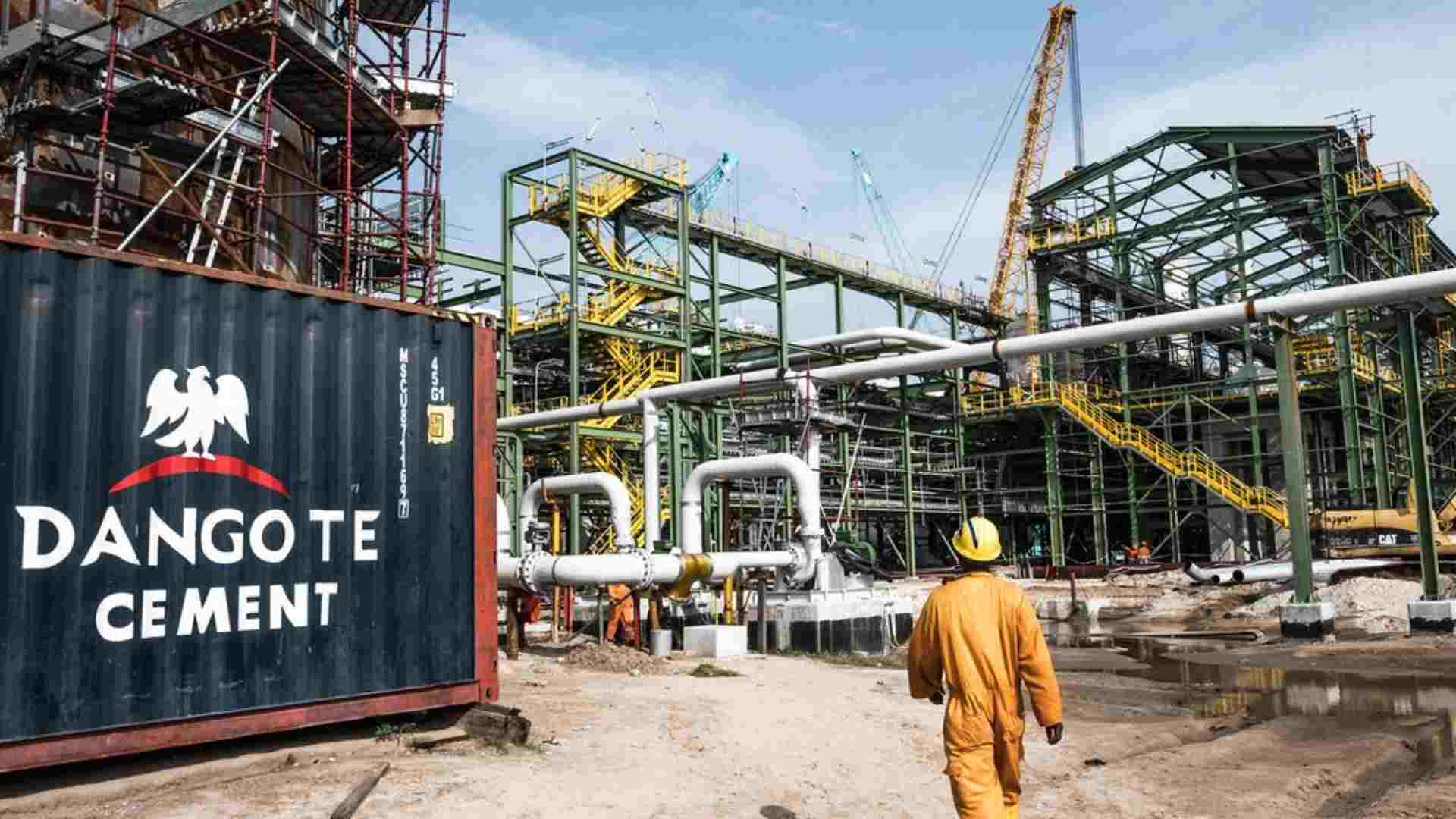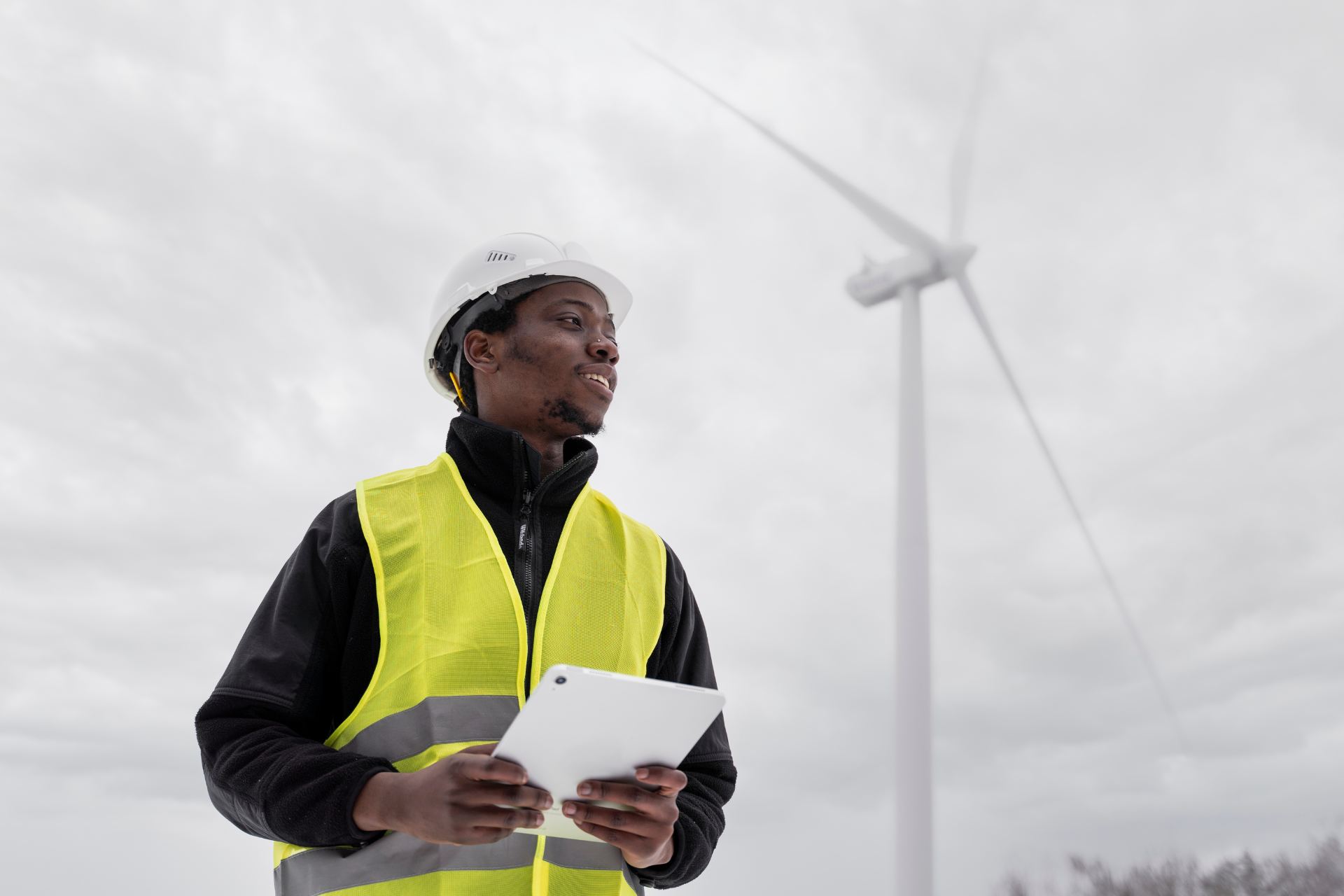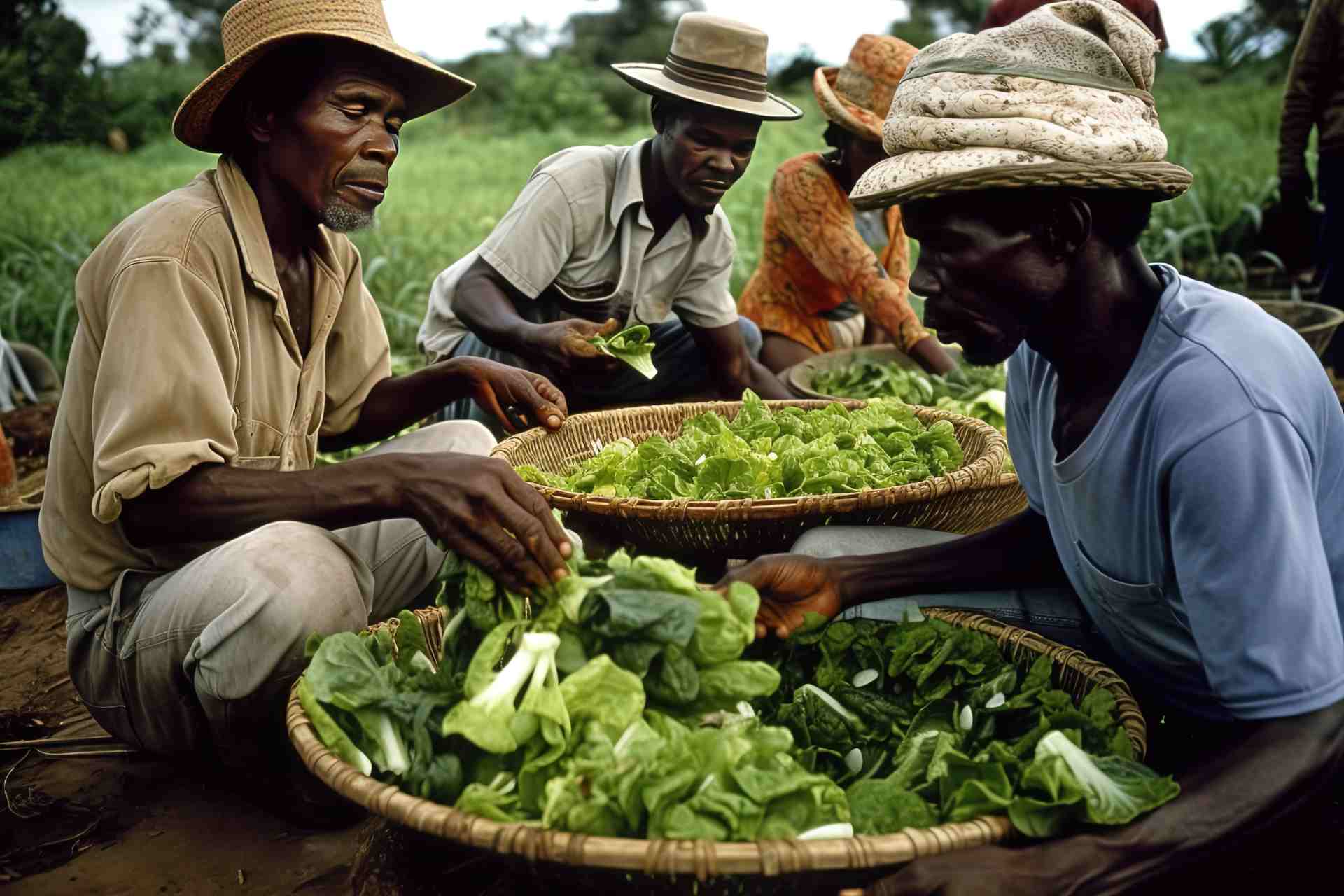Dangote’s Ogun Projects: Cement Factory & Largest Port
Aliko Dangote — Africa’s richest man and a powerhouse industrialist — is at it again with ambitious projects that have everyone talking. In a recent announcement, Dangote unveiled plans to build a massive new cement factory in Ogun State alongside Nigeria’s largest seaport at the Olokola Free Trade Zone (OKFTZ).
These twin developments are poised to boost Nigeria’s infrastructure and industrial capacity, showcasing the investment opportunities in Africa’s booming economies. Potential investors and observers are abuzz, seeing these moves as signals of an even more dynamic business landscape in Nigeria and beyond. Before we dive into the details, here’s a quick snapshot of the projects:
– New Itori Cement Plant (Ogun State) – 6 million metric tons per annum (MTPA) capacity, nearly $800 million investment, construction to be completed by late 2026.
– This will raise Ogun’s cement output to 18 MTPA – the highest in Africa.
– Olokola Deep Seaport (OKFTZ) – A multi-billion-dollar ultra-modern seaport planned in Ogun State, set to be Nigeria’s largest port when completed.
– The project revives a previously stalled vision, promising to transform regional trade and logistics.
With those facts in mind, let’s explore how these developments came about and why they matter for those looking to invest in Africa’s future.
Reviving a Cement Powerhouse in Ogun State
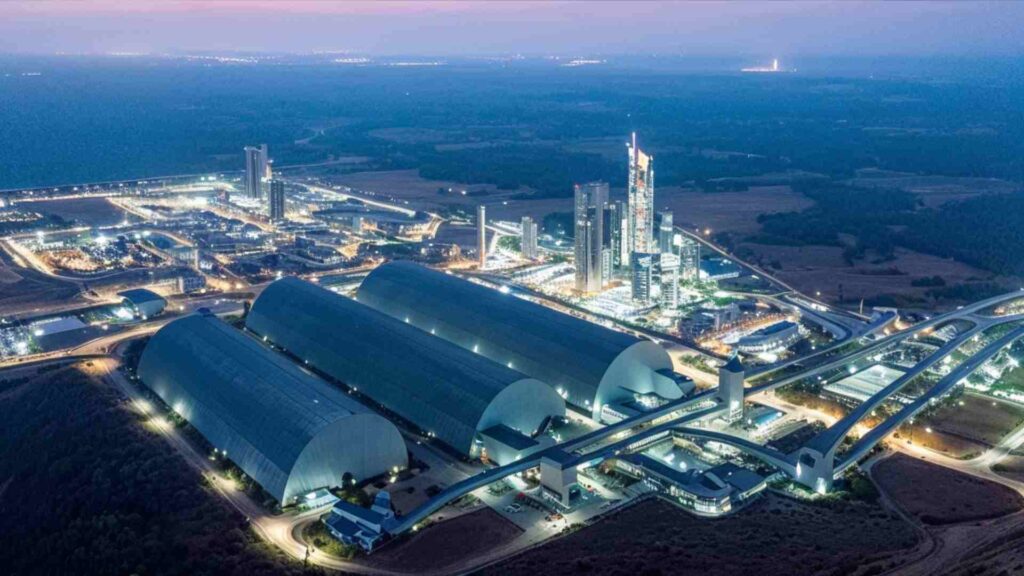
Dangote’s first big move is resuming construction on a long-delayed cement factory in Itori, Ogun State. This project involves two new production lines totaling 6 MTPA of cement capacity.
Originally started years ago, the Itori plant faced setbacks when the previous state administration halted construction – even demolishing the partially built facility twice.
Aliko Dangote revealed that opposition from a former governor, Ibikunle Amosun, delayed the plant, which “should have been completed and commissioned” earlier.
The shutdown of such a major project (valued at nearly US$800 million) was a huge loss of time and resources.
Now, under the investor-friendly climate fostered by current Governor Dapo Abiodun, Dangote is back on site and building in full force. He credited Ogun State’s pro-business policies for his return: “We earlier on abandoned our vision of investing in the Olokola Free Trade Zone … but because of [the] investor-friendly environment, I want to say we are back”.
While making that statement about Olokola, Dangote also updated the governor on Itori’s progress. Construction at Itori restarted on December 23, 2023, and the plant is now slated for completion by November 2026.
Once finished, the new factory will sit on 533 hectares of land and produce cement for domestic use and export.(globalcement.com) The impact on Ogun State’s industrial profile will be massive. Ogun already hosts a 12 MTPA Dangote Cement plant in Ibese, Yewa North.
Adding the new 6 MTPA Itori plant will boost the state’s total capacity to 18 MTPA, making it “the highest cement-producing state or region in Africa” according to Dangote.
In practical terms, this means Ogun alone will churn out more cement than most African countries, solidifying Nigeria’s position as a cement production hub on the continent. Dangote himself noted that with this expansion, Ogun State “remains far ahead of other countries across Africa in terms of cement production”.
This is a remarkable turnaround for a project that once seemed doomed – and it speaks volumes about Nigeria’s improving business climate. For entrepreneurs eyeing business opportunities in Africa, such success stories underscore the potential of investing in the region’s manufacturing sector.
Nigeria’s Largest Port in Olokola Free Trade Zone
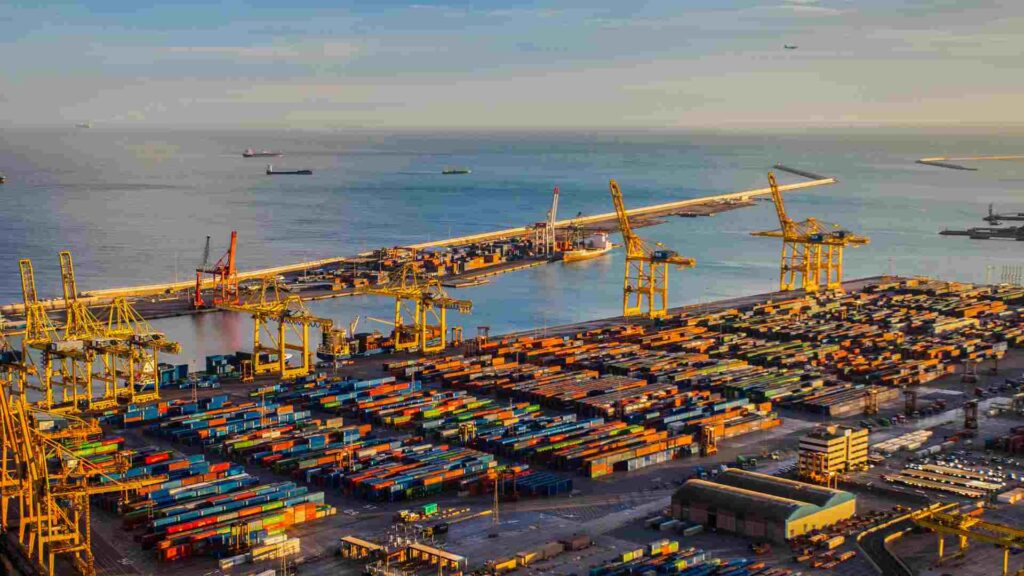
The second bold project on Dangote’s agenda is to develop Nigeria’s largest seaport at the Olokola Free Trade Zone, also in Ogun State. Dangote’s company had initially shelved plans for the Olokola port years ago, but the favorable policies in Ogun have reignited this vision. During his visit, Dangote announced that plans are underway to construct the largest port in the country.
“We are back and will work with the state government to return to Olokola,” he said, highlighting the renewed commitment to the project.
Details about the new port are still emerging, but it’s clear that this will be a huge, “multi-billion-dollar” infrastructure undertaking.
The Olokola port is expected to be an ultra-modern deep-sea port capable of handling high volumes of cargo, possibly surpassing the recently completed Lekki Deep Sea Port in Lagos in scale. For context, Nigeria’s newest port at Lekki has a planned capacity of 2.5 million TEUs (twenty-foot equivalent units) per year when fully operational, and it recently received one of the largest container ships to ever dock in Nigeria (a 277-meter vessel).
Dangote’s planned port at Olokola aims even higher. Though he has not yet provided specific figures on capacity or completion dates, simply labeling it “the largest port in the country” suggests an ambition to outsize all existing Nigerian ports, including Apapa (Lagos), Onne (Rivers), and others.
Strategically, the Olokola Free Trade Zone location is significant. This zone sits near the border of Ogun and Ondo states along Nigeria’s coastline, which could allow the new port to serve both Western and Mid-Western Nigeria efficiently. A major port here would decongest Lagos’s overburdened ports and create an alternative gateway for imports and exports. It also revives the dream of Olokola as an industrial hub – a dream that faltered in the past (Ogun State famously “lost” the Dangote oil refinery project to Lagos’ Lekki due to earlier policy hurdles).
Governor Abiodun even recalled the “heartbreak” of watching Dangote take that $20 billion refinery investment elsewhere.
Now, with Dangote bringing a huge port project to Olokola, the zone could finally become the economic catalyst it was intended to be. This development bodes well not just for Nigeria but for regional trade, as a new deep-sea port can serve markets beyond Nigeria’s borders and strengthen West Africa’s shipping network.
Boosting Infrastructure, Self-Sufficiency, and African Integration
Both the cement plant and the port project align with a broader narrative: Nigeria’s push for infrastructure-led growth and Africa’s industrial integration. In recent years, Dangote Group’s investments have significantly improved Nigeria’s self-sufficiency in key commodities. For instance, Dangote’s existing ventures in cement and fertilizer have turned Nigeria from a heavy importer into a net exporter of cement and fertilizer.
“Our investment in cement manufacturing has eliminated the need for imports, transforming Nigeria into a cement-exporting nation,” Dangote noted, emphasizing how local production now meets domestic demand with surplus to spare.
The new Itori plant will only expand this surplus, potentially supplying cement for construction projects across West and Central Africa. This is a prime example of African economies building capacity to serve their own regions – a key goal of the African Continental Free Trade Area (AfCFTA).
The upcoming Olokola port similarly promises to enhance economic integration across Africa. A state-of-the-art port in the Gulf of Guinea will facilitate smoother trade flows under AfCFTA by reducing shipping bottlenecks. Neighboring countries and landlocked nations could access global markets through Nigeria more easily, thanks to increased port capacity. By investing in large-scale logistics infrastructure, Nigeria is positioning itself as a regional trade hub. This not only benefits Nigeria’s economy but also helps connect African markets to each other.
Investment opportunities in Africa often hinge on adequate infrastructure – and Dangote’s projects are directly tackling this need. Improved ports, roads, and factories lower the cost of doing business and make African countries more competitive for manufacturing and trade. It’s a virtuous cycle: better infrastructure attracts more industries, which in turn necessitate further infrastructure. Dangote’s bold moves in Ogun State exemplify this cycle in action.
Crucially, these projects have strong support from government officials, indicating an alignment with national and regional development strategies. Governor Abiodun praised Dangote’s efforts, calling them “giant strides” that will accelerate Ogun’s growth and thanking him for “believing and trusting in [Nigeria]” by reinvesting in the state.
Implications for Trade, Logistics, and Job Creation
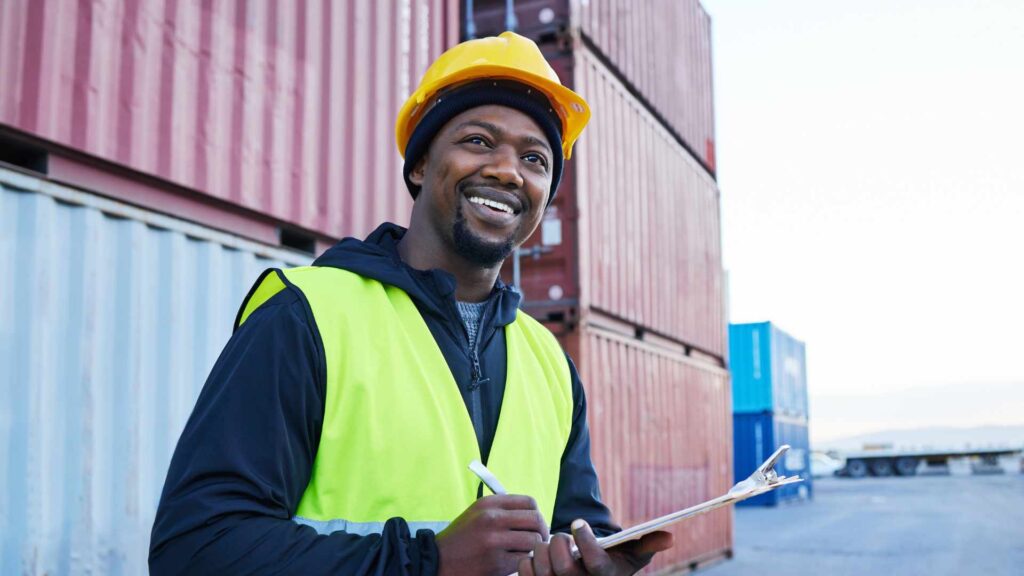
The direct benefits of these initiatives will be felt in trade, logistics, and employment. Once operational, the Olokola port will expand Nigeria’s cargo handling capacity and likely reduce chronic port congestion in Lagos. This means faster turnaround times for ships, lower shipping costs, and improved reliability for businesses importing or exporting through Nigeria. Companies in sectors from agriculture to manufacturing will find it easier to send their goods abroad or bring in raw materials.
In short, a new port boosts the entire logistics value chain – trucking, warehousing, freight forwarding, and more – creating numerous business opportunities in Africa’s trade and transport sectors. It can also attract global shipping lines to include Nigeria on more routes, knowing there’s ample capacity to dock and unload. As the African Continental Free Trade Agreement gains momentum, having a modern mega-port will position Nigeria as a key gateway for intra-African trade as well as trade between Africa and the rest of the world.
The job creation impact cannot be overstated. During construction, the Itori cement plant and the Olokola port projects will employ thousands of engineers, construction workers, and contractors. Once up and running, the cement factory will provide permanent jobs in operations, maintenance, logistics, and administration. Similarly, ports are labor-intensive ecosystems – from dockworkers and crane operators to customs officials and logistics managers. There will also be indirect jobs spurred by these projects: suppliers, service providers, food vendors around sites, and housing construction as workers move in. For perspective, the Dangote Refinery in Lagos reportedly employs around 10,000 people directly (allafrica.com), and a large seaport project could have a comparable magnitude of employment when factoring in ancillary services. Moreover, by supplying cheaper cement and better port access, these projects will likely stimulate new businesses (e.g., local contractors can build more with lower cement costs, exporters can expand operations with improved shipping). This multiplier effect is at the heart of Dangote’s industrial strategy – each investment unlocks several more opportunities in the economy.
This diversification not only creates a more resilient domestic economy, but it also makes Nigeria and Africa more attractive to foreign investors. Global investors watching these developments can see that Africa is not just about raw materials; it’s about building industries and logistics networks that can compete globally. In essence, Dangote is sending a message that it’s time to invest in Africa’s real sector – where the growth potential is immense and increasingly achievable.
Conclusion: A New Chapter for Ogun State and Africa’s Industrial Journey
Aliko Dangote’s announcement to build a new cement factory and a gigantic seaport in Ogun State marks an exciting chapter in Africa’s development story. These projects encapsulate the optimism and momentum in Nigeria’s economy – one that is leveraging industrial might to drive growth. For Ogun State, the benefits will be transformational: an unprecedented cement output making it an industrial powerhouse, and a world-class port anchoring it on the global trade map. For Africa at large, it’s a testament to what visionary investments can achieve in unlocking investment opportunities in Africa’s infrastructure and industry.
From a practical standpoint, entrepreneurs and international business leaders should take note. The success of Dangote’s ventures underscores that business opportunities in Africa are real and profitable, especially when supported by conducive policies and partnerships. Africa’s richest man is literally “putting his money where his mouth is” by doubling down on Nigerian infrastructure, and the ripple effects will be felt across the continent. In a casual conversation, one might say Africa’s industrial future is being built brick by brick – or in this case, bag of cement by bag of cement, and port by port. The takeaway is clear: whether you are a seasoned investor or a curious entrepreneur, Africa’s doors are open and its prospects are bright. Dangote’s Ogun State projects are not just local wins; they are part of a broader narrative of Africa rising, integrating, and offering some of the most exciting places to invest in Africa today.
Sources: Recent statements by Dangote and Ogun State officials in March 2025, as reported by Business Insider Africa, The Guardian Nigeria, African Review, and other news outlets
Sources:
globalcement.com
thenationonlineng.net
africanreview.com
guardian.ng
allafrica.com
africa.businessinsider.com
FAQ
1. How will the new port and cement factory impact Nigeria’s economy?
The synergy of a new port and cement factory could serve as a catalyst for Nigeria’s economic diversification. The port will streamline logistics, reduce bottlenecks at congested terminals, and boost regional trade efficiency—transforming the country into a stronger West African trade hub. Meanwhile, the cement factory will not only address domestic infrastructure demands but also reduce reliance on imports. Together, they create a ripple effect: job creation, improved foreign direct investment confidence, and enhanced supply chain resilience across multiple sectors.
2. Where is Dangote building the new cement factory in Nigeria?
Dangote is setting up the new cement factory in Itori, a town nestled within Ewekoro Local Government Area of Ogun State. Strategically located along key industrial corridors and within proximity to limestone deposits, Itori offers the kind of logistical and resource advantages that cement production thrives on. It’s a location that echoes both foresight and functionality—bridging the gap between raw materials and major construction markets.
3. Why did Dangote choose Ogun State for these projects?
Ogun State presents a compelling case for industrial investment—abundant in limestone, well-connected by road and rail, and blessed with a history of industrial activity. But beyond logistics, Dangote’s decision is also a story of long-term vision. The state’s business-friendly policies, proximity to Lagos (Nigeria’s commercial heartbeat), and the presence of a skilled workforce make it an ideal launchpad for large-scale operations. It’s not just geography—it’s strategic intent.
4. What challenges has Dangote faced with the Itori cement factory project?
No project of this scale escapes friction. For the Itori plant, the hurdles span from land acquisition disputes to environmental compliance issues and infrastructural gaps—especially in electricity and road networks. There have also been pockets of resistance from local communities concerned about displacement and ecological impacts. Yet, Dangote’s approach, involving stakeholder engagement and phased development, reflects an effort to navigate these complexities with both corporate rigor and local sensitivity.


